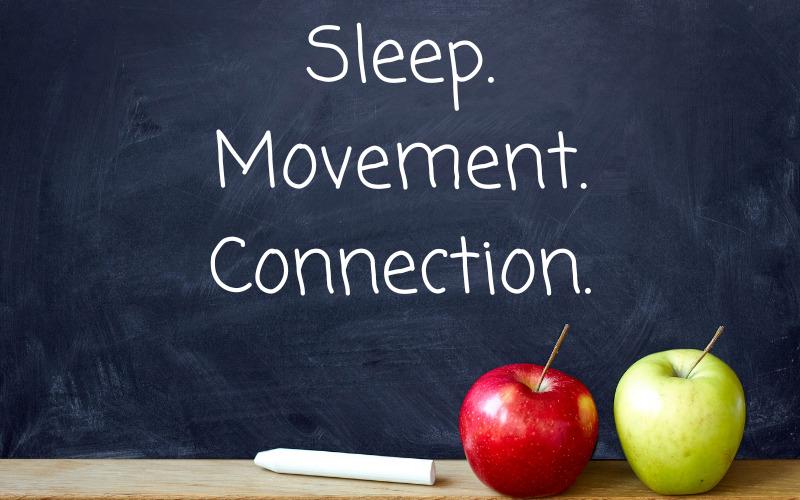Anxiety is the most common mental health disorder in the US. It has, or will, affect about a third of all adolescents and adults. Self reported rates of anxiety among adolescents are rising and in the majority of cases, anxiety is a precursor for depression. Another reason for concern is that anxiety is very easy to mask. Finally, there’s reliable data that anxiety rates are highest among the most affluent.
The topic of anxiety is a personal one for me. It’s the primary issue that I’ve struggled with my entire life. While I have a handle on it now, it’s still something that I’m constantly working with and managing, especially as a parent. I wish I knew 10 years ago what I know now, but don’t we all. Whether you struggle with anxiety, have a kiddo that does or both, understanding how to provide effective help is critical. Despite the best of intentions, we too often miss the mark.
Below are five common mistakes most of us make with anxious kiddos. I’ve made all of them myself (and still do at times).
1. You’ve underestimated the impact of your own anxiety.
When our behavior is driven by anxiety, we talk faster, control more and listen less. Notice when you experience fear, you get a fast heart beat and physical discomfort in response to behavior you observe or anticipate in your teen. If you’re able to identify this in yourself, you’re 80% of the way there. The rest of the way is simply reassuring yourself, taking slow deep breaths and hanging in there. Simple but not easy.
If you can’t relate to the above description, please take a moment to be honest with yourself here. You absolutely may not be struggling with anxiety. But I’m constantly amazed at how many people, kids and adults, share with me that they don’t feel anxiety. Then they go on to tell me how they smoke marijuana daily, work 80 hours a week, are control freaks at home, rarely leave the house or avoid dealing with the more uncomfortable aspects of parenting and marriage. To them I often say, “of course you don’t feel anxiety, you’re avoiding most of the things that cause you uncertainty and a lack of control.”
2. You’re catastrophizing and generalizing.
A hallmark of anxiety is making mountains out of mole hills. This is called catastrophizing. Your child may be needing some extra support, but they’re a long ways away from being unemployable drug addicts. Your child may end up at a community college, take a bit longer to figure things out and/or make some dumb mistakes, but hopefully none of their decisions are catastrophic.
If you’re generalizing, you’re thinking of your child in “always/never” or “everyone/no one” terms. You’ve forgotten to see their strengths and their behaviors that demonstrate the exceptions. Your child likely thinks this way about themselves as well with thoughts like: “I always mess up” or “Everyone hates me.”
Your anxious kiddo, likely knows your body language and facial expressions better than you. They see the hopelessness and fear in your eyes and face. They can tell when you look desperate to “fix” them. For this reason, you’ve got to be honest with your concerns but continually project confidence in their ability, and yours, to figure this out.
3. You’re accommodating.
Accommodating is anything we do in service of avoidance without any teaching or skill building along the way.
Dealing with a potential panic attack and/or huge fit or meltdown can be scary as a parent. The best way to avoid these head-on collisions is to accommodate the behavior. So we let them stay home or not come with us. We practically do their homework for them, stop setting limits on their devices, don’t ask them to be respectful or communicate. At school, they may get extra time to do homework and their ADHD (which may actually be anxiety) explains everything. We walk on eggshells and constantly manage our own distress tolerance without expecting them to build up their own.
“What if my child literally refuses to go to school, am I accommodating them if I let them stay home?”
Accommodation is when we support avoidance without any teaching or skill building. In that case, your child may need to stay home that day. You’re not accommodating if you prioritize helping them develop a plan to make it to school the next day. When they’re calm (and wake back up), lovingly and firmly explain that their number one expectation is to work on a plan to get to school the next day. This will require: Identifying the barriers and challenges while figuring out a plan to learn the skills to overcome them. This may involve therapy, new limits on screens, and more positive family interactions with better listening on everyone’s part.
4. You’re avoiding.
The default strategy we use to manage anxiety is avoidance. We avoid those people, that place, that interaction.
Whenever I hear parents who don’t get along say, “But we never fight or argue in front of our kids,” I get anxious myself. I imagine the immense unspoken tension and confusing non-verbal communication that their kids have been living with for so long.
Unfortunately, many highly anxious teens have become professional avoiders as well. It’s so easy these days. Marijuana, social media and gaming are insanely accessible and increasingly addictive. That mixed with a parenting culture that invites accommodation and letting our teens’ fits and tantrums run the household all make avoidance ever present.
5. You’re focusing on the wrong things.
I know you tell your kids that you just want them to try their best. We all say this. Let’s be honest, for many of us, our body language, tone and facial expression often tells a different story when our kids (or we) miss the mark, and our kids know it. How much time do we spend asking them questions about their outcomes? Grades? Colleges? Making the team? The impact their present choices have on their future? In contrast, how much light do we shine on their everyday courage, kindness towards others (including family members) or their effort particularly when it ends in failure?
For many teens, the take away from us is: “When you say try my best, what you really mean is get straight A’s, and do everything well that everyone tells me to.” I know you’re not saying that, but that’s often their experience from us and the culture, especially for girls.
If you’ve read this far I’m impressed. You’re an incredible parent, and your child is lucky. This article is focused on common mistakes that we’ve all made. It’s important that we strive to treat ourselves and one another with kindness as we fumble through this complex period of parenting. If that’s how we want our kids to respond to their own mishaps, we must model it. You’re kiddo is extremely likely to get through this and end up okay on the other end.
I appreciate these words by Courtenay Hameister, former host of Live Wire and openly anxious adult:
“Anxious people are braver than the un-anxious, because we do it anyway, every single day. We’re faced with fear on a regular basis, and we push through it in order to simply live our lives. And that’s something to be proud of.”
Perhaps we just need to give ourselves a little more credit and a few more deep breaths.
I recently talked about these common mistakes on AMNW. Check out the clip below.






